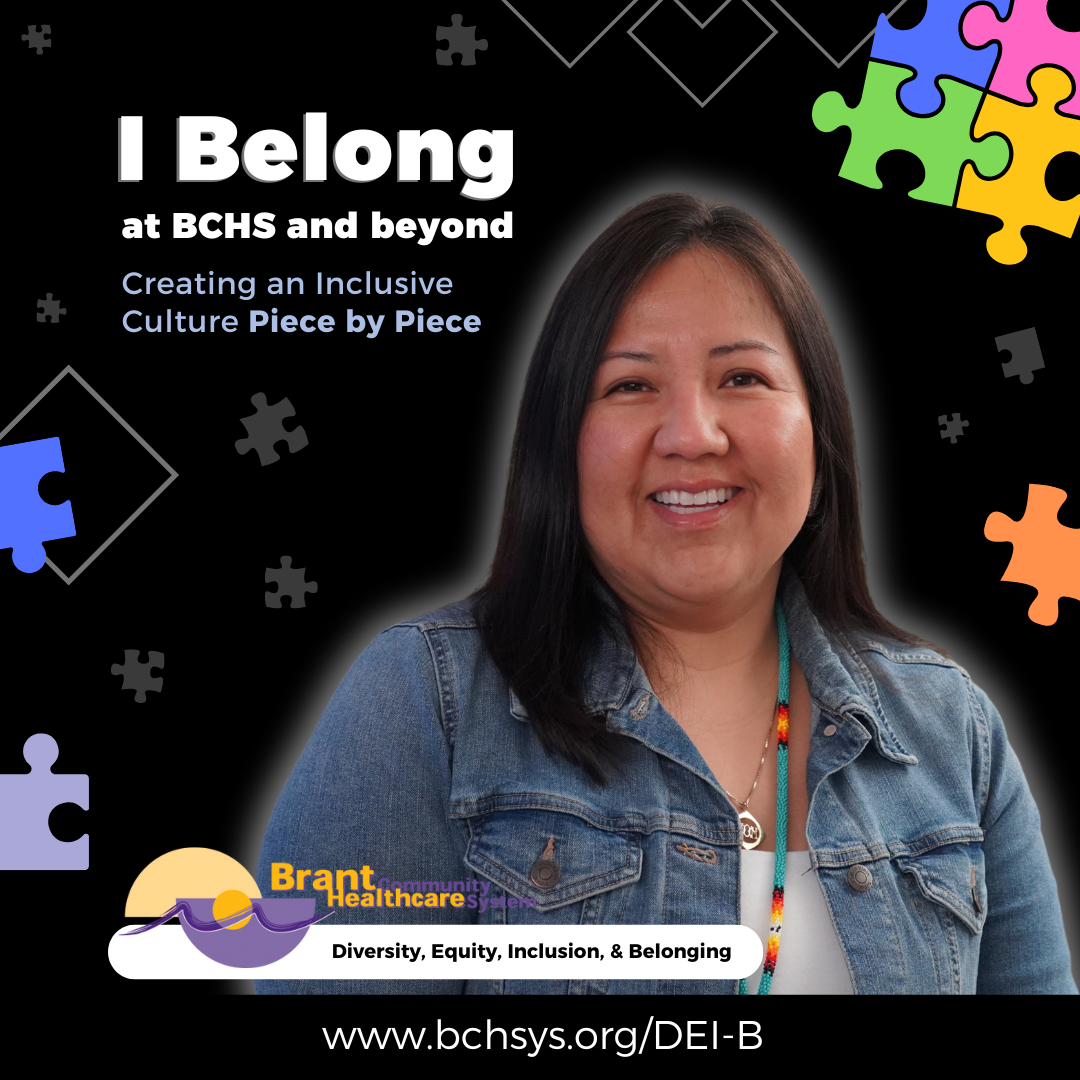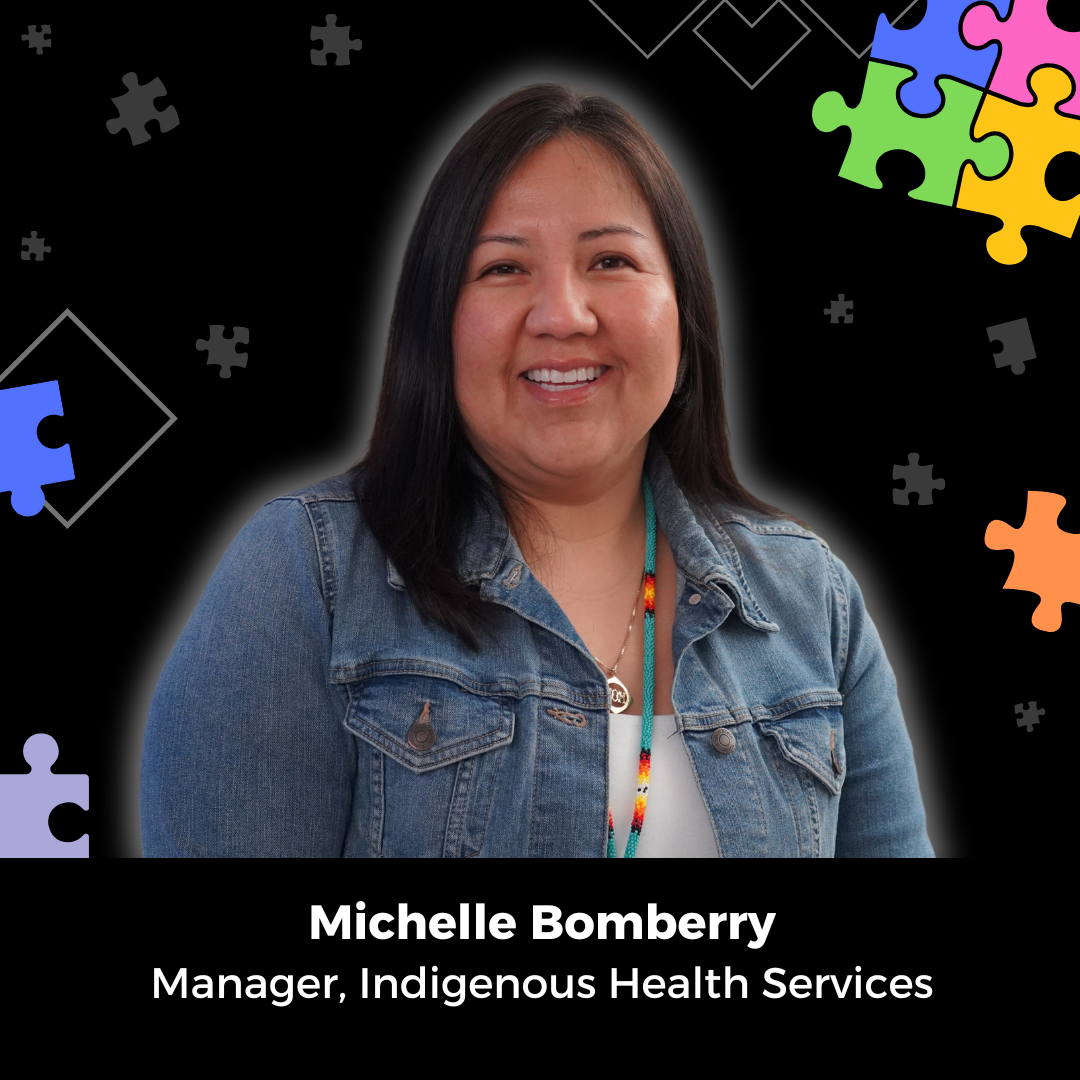Michelle Bomberry: Listening, Teaching, and Rebuilding Trust


Michelle Bomberry’s journey to Brant Community Healthcare System (BCHS) is shaped by deep cultural roots, lived experience, and a lifelong commitment to education and community care. As Manager of Indigenous Health Services, she brings clarity, compassion, and a calm strength to her role, offering a perspective shaped by both academic study and personal connection.
Michelle was born in California, where her Haudenosaunee father and Inca mother met. She was raised primarily on Six Nations of the Grand River; a place she proudly calls home. This dual Indigenous identity gives her a unique lens, but it is her father's teachings and her connection to Haudenosaunee culture that ground her daily.
With a background in policing, corrections, and education, Michelle has worked as a professor and program developer at Indigenous institutes, while completing her PhD and continuing to teach part-time. She values education as a two-way exchange, saying, "We should all be learning from each other. That is how we grow."
Bonds That Build Better Systems
Michelle’s relationship with BCHS began long before she joined the staff. Her aunt worked at the hospital for nearly four decades, and her grandmother also served in the organization. But when Dr. Karen Hill approached her about applying for the Indigenous Health Services role, Michelle saw an opportunity to create change from within.
Motivated by the experience of her father, she recalls when he had a stroke and was left in a hallway for days without explanation. “They were doing the tests and taking care of him, but no one told us what was happening. That broke our trust,” she says.
It also opened her eyes to the communication gaps many Indigenous families experience in the healthcare system. Now, Michelle advocates and understands the healthcare system more deeply through the lens of advocacy, education, and community engagement.
“We need to understand history to understand contemporary reality,” she shares.
For Michelle, the goal is not to speak for others, but to create space for honest conversation and learning.
"It is not about who has the issue. Everyone has a responsibility to listen, learn, and unlearn. We are not less than. We are part of this story too."
Sources of Strength
Although she does not attend longhouse regularly, Michelle holds a deep respect for the ceremonies and teachings of her culture. What grounds her most is her relationship with the land.
“Mother Earth continues to give us everything we need. Even when we exploit and harm her, she keeps going. That is powerful,” she shares.
By seeing the land as a source of strength and clarity, she reminds others that we are visitors on it. “I am only here for a short time. My role is to do the work I was meant to do while I am here,” she says.
Michelle points to the Haudenosaunee teachings as a guiding force. "When we lead with a good mind, we create safety. And when people feel safe, they can thrive,” she says. It also allows for principles like peace, righteousness, and the good mind to go beyond abstract ideas, and instead infuse them into everyday practices.
Her message to others is grounded in mutual respect. “Respect me and I will respect you,” she shares. It’s not about asking for special treatment, but rather being seen, understood, and treated with dignity.
“I hope that every person who walks through the doors of BCHS, whether staff or patients, feels recognized and valued. We are all human beings, and we all have our own story. We all have something to contribute. And we are stronger when we walk together.”
When asked about a song that resonates, Michelle shares that "Titanium" has been her anthem for years. “During my undergrad, I made a presentation and used the song Titanium to demonstrate how Indigenous people have been impacted by colonialization,” she says. “But like titanium we persevere, have strength and continue to define our lives as we see it.”
This feature is part of the “I Belong” campaign, where BCHS employees, professional staff, and volunteers are given the opportunity to share their personal stories, strengthening a culture of belonging that empowers each individual and deepens our collective mission to provide exceptional care. Together, we’re creating a more inclusive, connected, and empowered BCHS.





